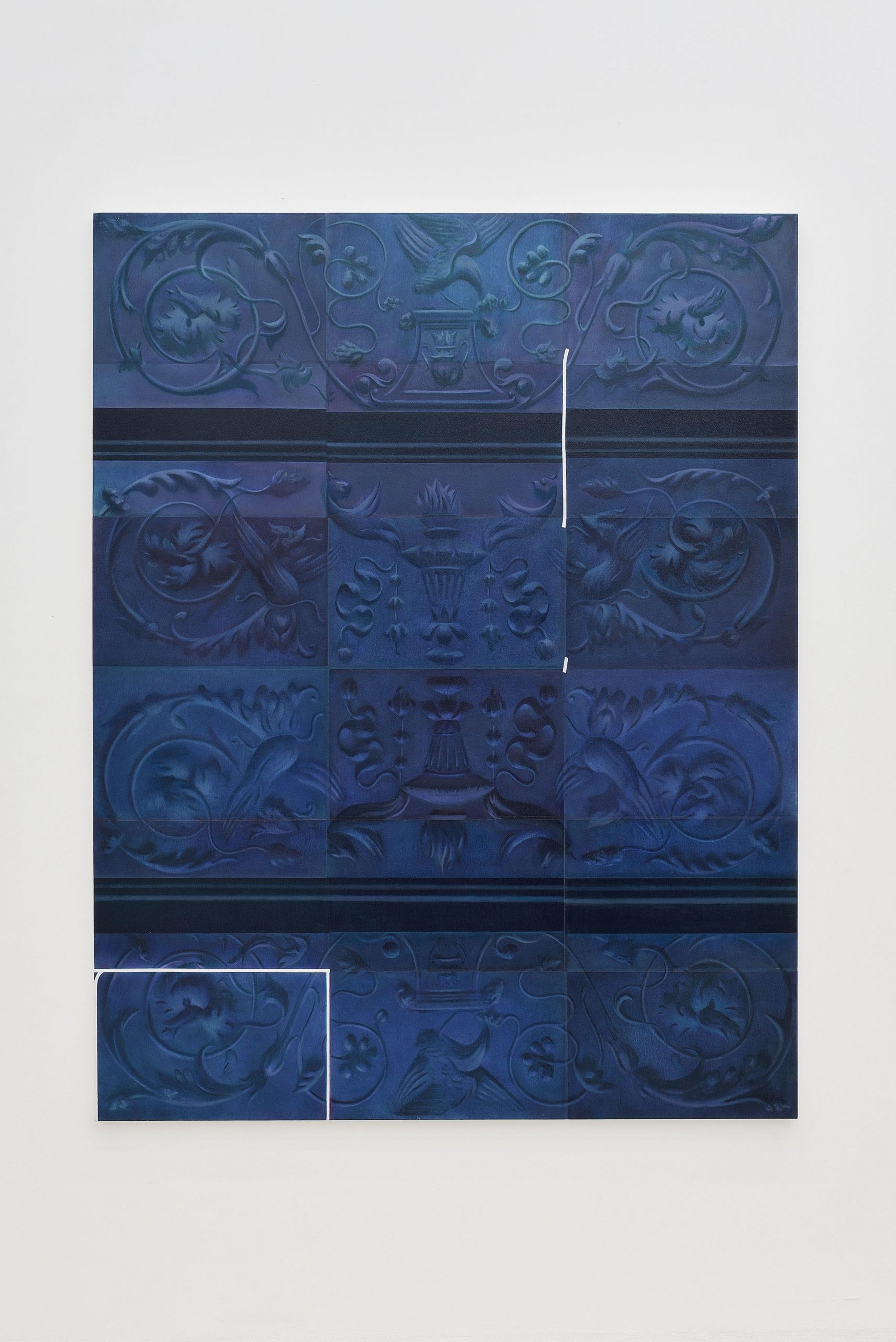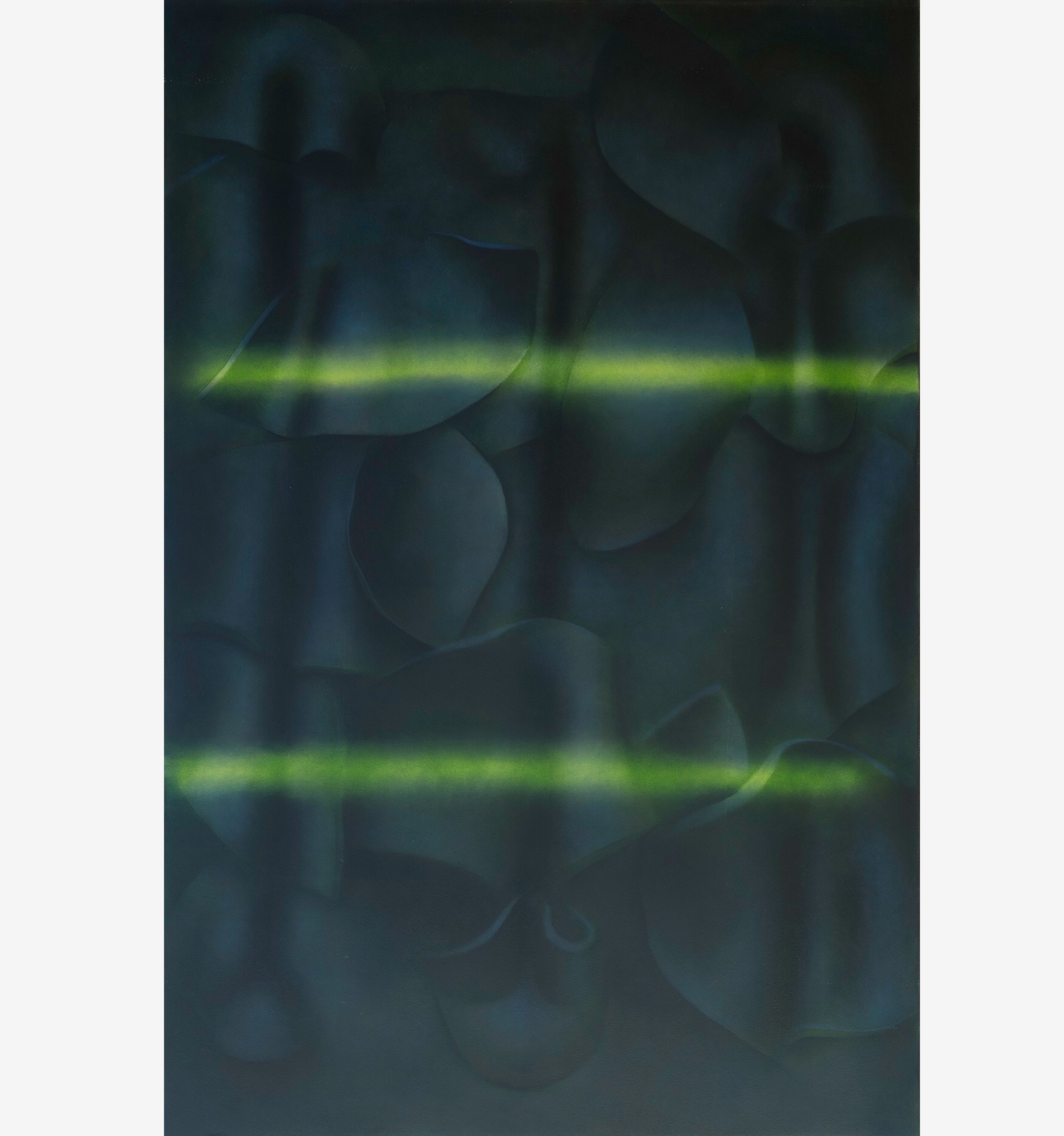Louise Giovanelli’s works use paint to combine a timeline that stretches the 14th Century to the present day. Many of her pieces take references from early Renaissance masters – including Duccio, Giotti and Piera della Francesca – yet they appear decidedly contemporary, mining the aesthetics of our digital age and the framing of images akin to our smartphones. Often working in series, the language of painting she stakes out is articulated in similar yet different modes, as if saying the same thing in a different cadence.

Louise Giovanelli – Sill, 2019. Courtesy the artist.

The title Palisade – from the Latin ‘Palus’ meaning ‘Stake’ – denotes a wooden fence or set of railings forming an enclosure or defence. This references the particular configuration of lines within this particular sculpted leaf work. The painting Palisade is part of a larger series of work that comprises black-modelled leaves in various configurations. The reoccurring historical motif of the Acanthus leaf suggests something classical, decorative and ornamental. I exploit its connotations as simplistic anodyne decoration, to explore subsequent purposeful visual ideas. These black paintings consider the act of drawing both within the image and on top of. Sculptural volume is manipulated, to form indentation lines. These lines connect one corner to another and delineate space. Working in series allows me to test the quality and validity of ideas. In this way I use similarity and repetition in my work as a strategy to explore nuances over an extended period of time. It is an approach akin to the idea of upgrades – a rhythmical repetition in order to check, or ensure its validity, quality and function. Like anything else that necessitates a repetitive sequence for growth – tuning a musical note for example, repeating of a certain move results in a sort of fitness and quality.
artwork: Louise Giovanelli – Palisade, 2019. Courtesy the artist.
End.